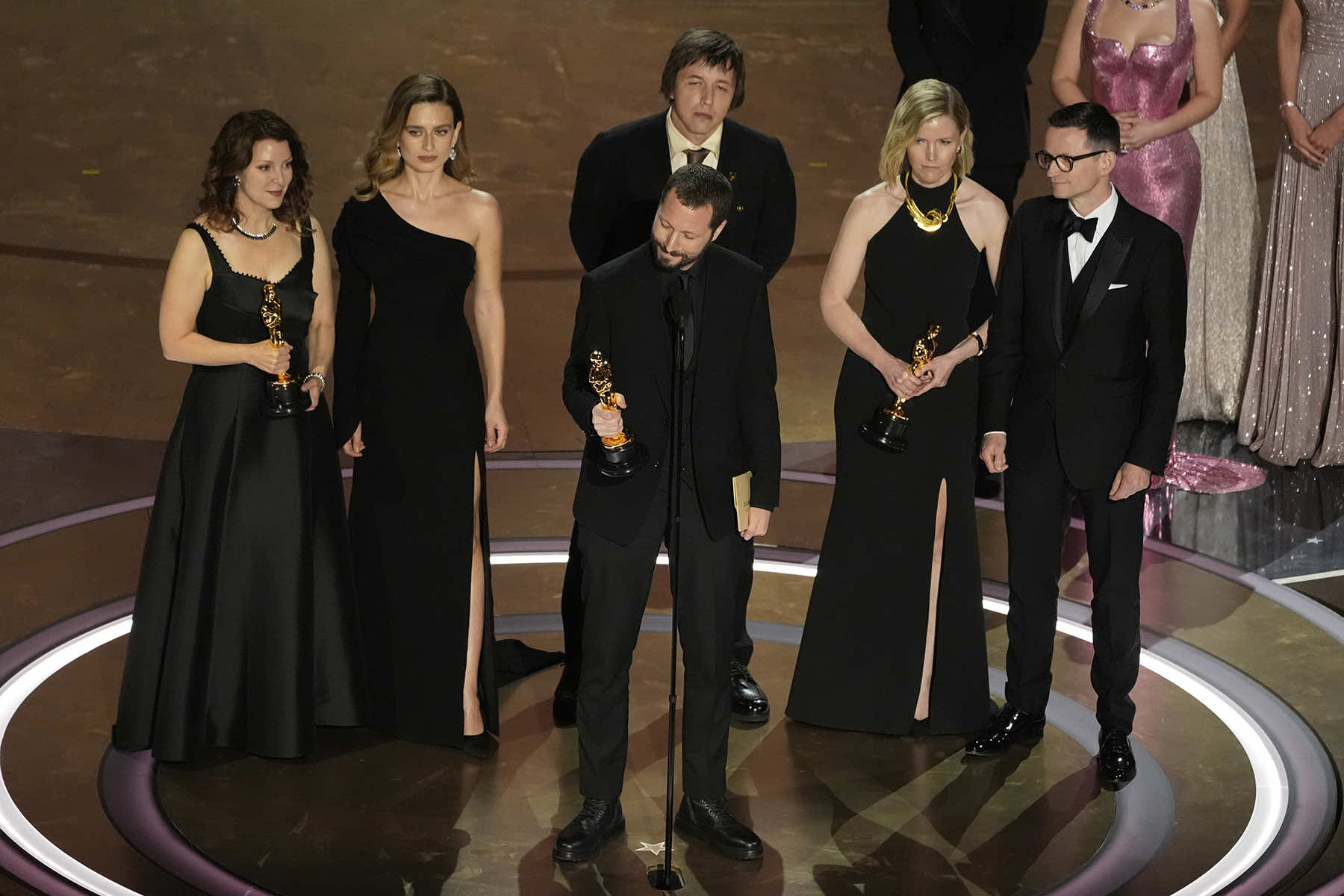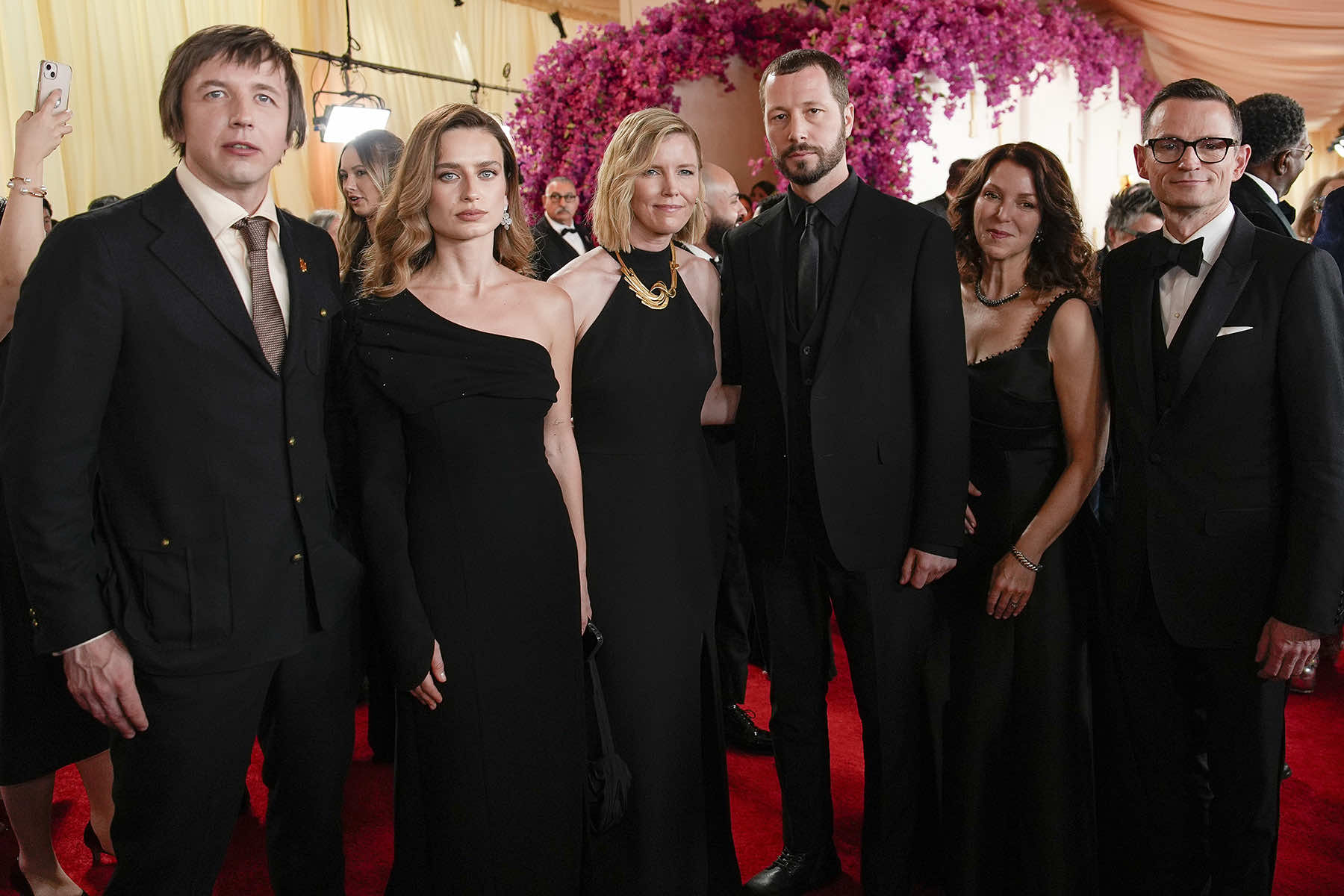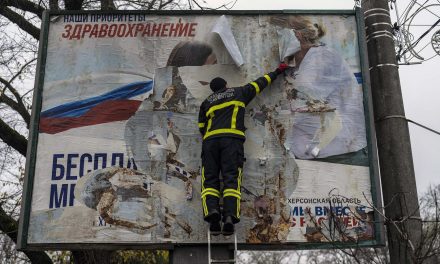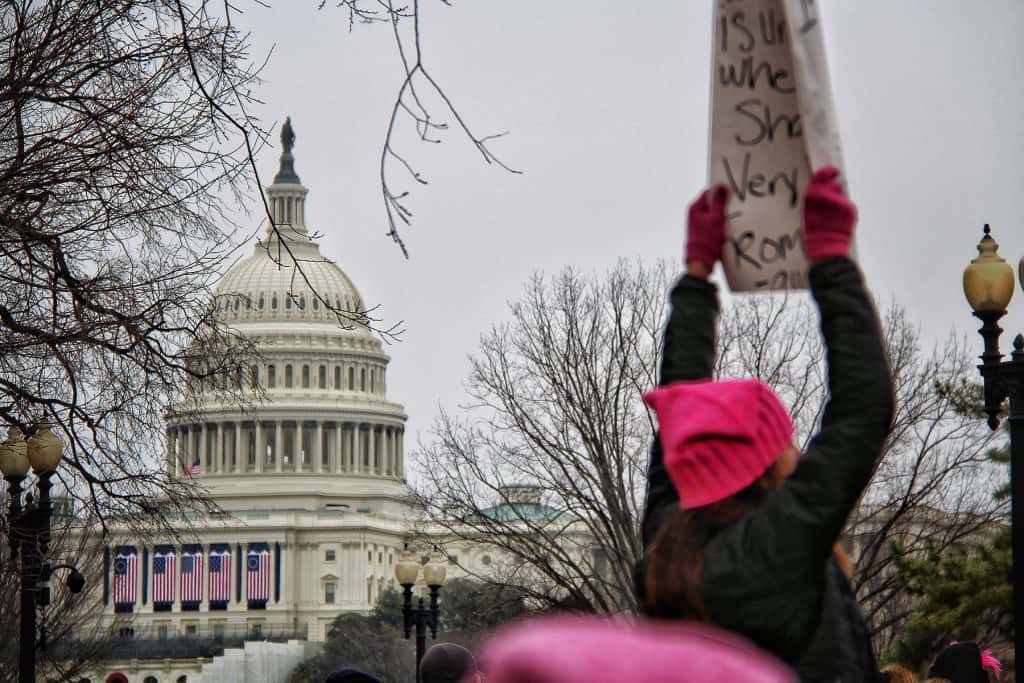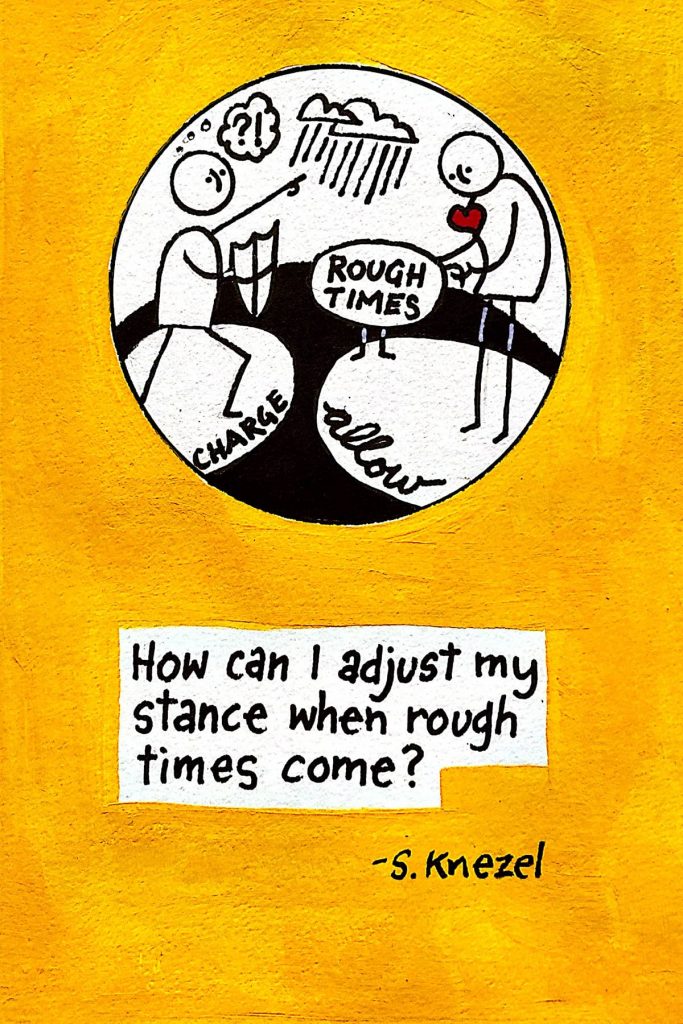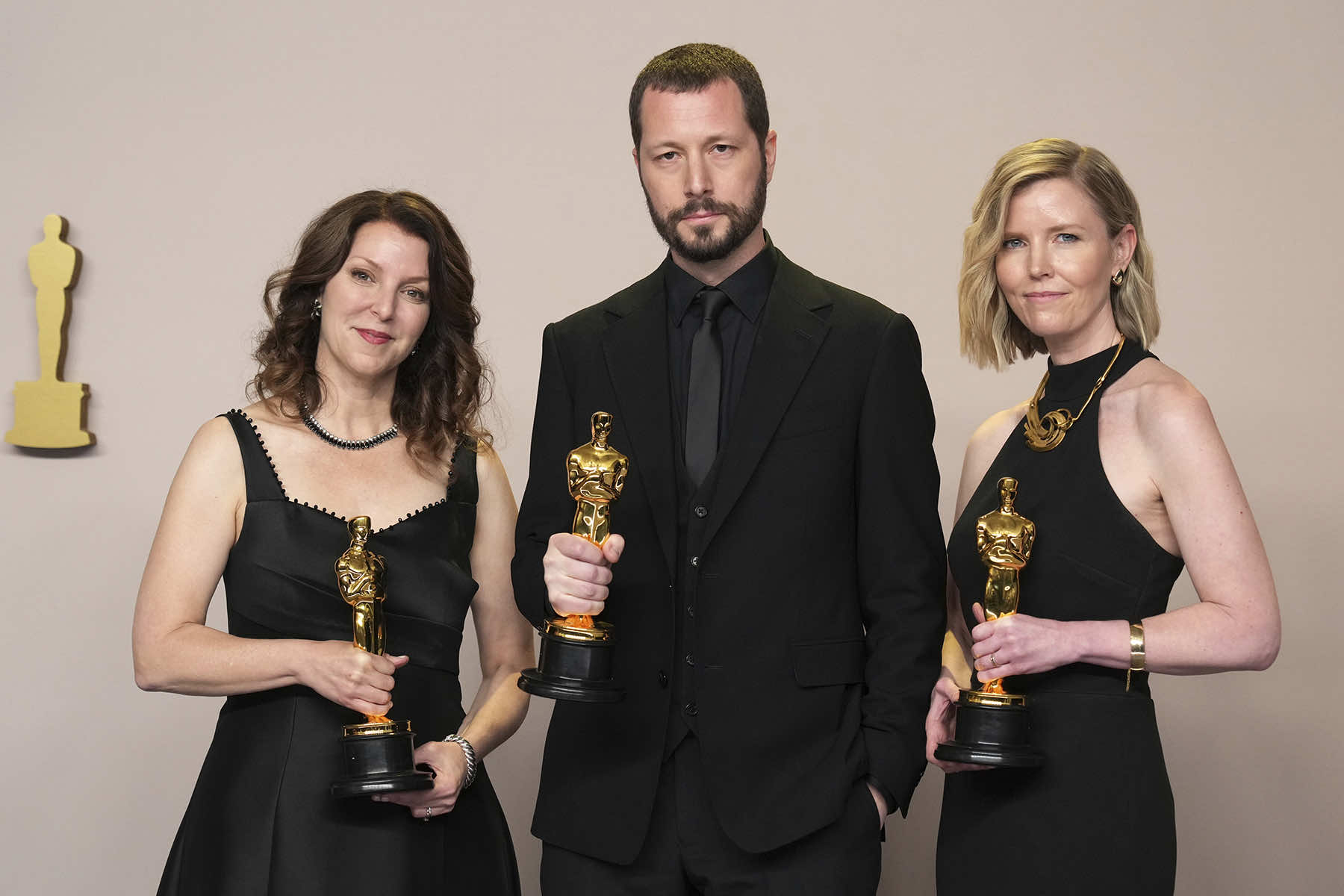
In March, Ukraine awoke to another day of war, Russian drones blasted buildings in the Kharkiv and Odesa regions, but also the news it had won its first Oscar.
The best documentary victory for Mstyslav Chernov’s “20 Days in Mariupol,” a harrowing first-person account by The Associated Press journalist of the early days of Russia’s invasion in 2022, was bittersweet.
“This is the first Oscar in Ukrainian history, and I’m honored,” an emotional Chernov said at the Academy Awards. “Probably I will be the first director on this stage to say I wish I’d never made this film, I wish to be able to exchange this to Russia never attacking Ukraine.”
He called on Russia to cease aggression in Ukraine. “I wish for them to release all the hostages, all the soldiers who are protecting their land, all the civilians who are in their jails,” he said.
“We can make sure that the history record is set straight and the truth will prevail, and that the people of Mariupol, and those who have given their lives, will never be forgotten. Because cinema forms memories and memories form history.”
Chernov ended his speech by switching to his native language, uttering his nation’s salute, “Slava Ukraini,” which means “Glory to Ukraine.”
Back home in his native Ukraine, the award was applauded for exposing the brutal devastation of the war and the message Chernov had sent to the world from one of the biggest stages.
Ukrainian President Volodymyr Zelenskyy said he was grateful to the team for creating the film and cheered the award as “important for our entire country.” He said the death toll in Mariupol remains unknown but satellite images show “thousands and thousands” of graves.
“The horrors of Mariupol must never be forgotten,” he said on social media. “The entire world must see and remember what the inhumane Russian invasion brought to our people. Cities and villages were destroyed, homes were burned, and entire families were killed by Russian shells and buried in their own backyards.”
The AP team of Chernov, photographer Evgeniy Maloletka and producer Vasilisa Stepanenko arrived an hour before Russia began bombing the port city. Two weeks later, they were the last journalists working for an international outlet in the city, sending crucial dispatches to the outside world showing civilian casualties of all ages, the digging of mass graves, the bombing of a maternity hospital and the sheer extent of the devastation.
A joint production of AP and PBS’ “Frontline,” statuettes were awarded to Chernov, producer and editor Michelle Mizner and producer Raney Aronson-Rath. The Oscar — and nomination — was a first for both Chernov, an AP video journalist, and the 178-year-old news organization. This was the third nomination and first win for “Frontline.”
While reporting on the invasion, Chernov encountered quite a few different reactions to the team’s presence on the ground. Some thanked the journalists for doing their jobs. Some called them prostitutes. Some doctors urged them to film graphic scenes of injured and dead children to show the world what had been done.
Only about 40 minutes of footage made it out to the world in real time because of poor connections, but when Chernov and his colleagues were finally able to leave, he decided he needed to do something with the 30-some hours they had on tape. Chernov, who was born in Ukraine, narrated the documentary as well.
Police officer Volodymyr Nikulin, who is featured prominently in the film as he helped the crew cover the story and ultimately escape Mariupol as Russian forces closed in, said he was happy the movie had won the prestigious award.
Nikulin, who was later injured helping victims of a Russian attack on Pokrovsk in the Donetsk region, ferried the crew around Mariupol in a desperate attempt to help them find a place where they could transmit their footage because he said it was vital the world could see what was going on. He said the film served as an important reminder of “the most difficult time for our country.”
“Right now, we may be facing a similarly challenging moment,” he told AP in Kyiv.
“But this film has shown that we can defend our country, that we are united. And at this time, if the world sees that we are fighting, the crimes the aggressor is committing in our country, how it destroys our cities, I believe that the world will support our efforts in the fight, and this will be decisive at this time.”
Ukraine’s human rights chief Dmytro Lubinets praised the documentary for showing “the truth to the whole world.”
“This awards ceremony is an opportunity to address millions of people. This is what the film director did by mentioning the occupation, prisoners of war, killing of Ukrainians by Russia, and illegal abduction of civilians,” he wrote on Telegram.
The award, one of many the documentary has garnered including the Pulitzer Prize, comes as the war has entered its third year. Ukraine’s forces and ammunition are depleted and Russian troops are trying to push deeper into the Ukraine-held western part of the Donetsk region and penetrate the Kharkiv region to the north.
The award marks the second consecutive Oscar documentary awarded for a film that has shone a harsh light on Russia.
Last year, “Navalny,” about the Russian opposition leader who died just last month in prison, won best documentary.

